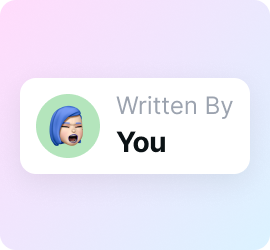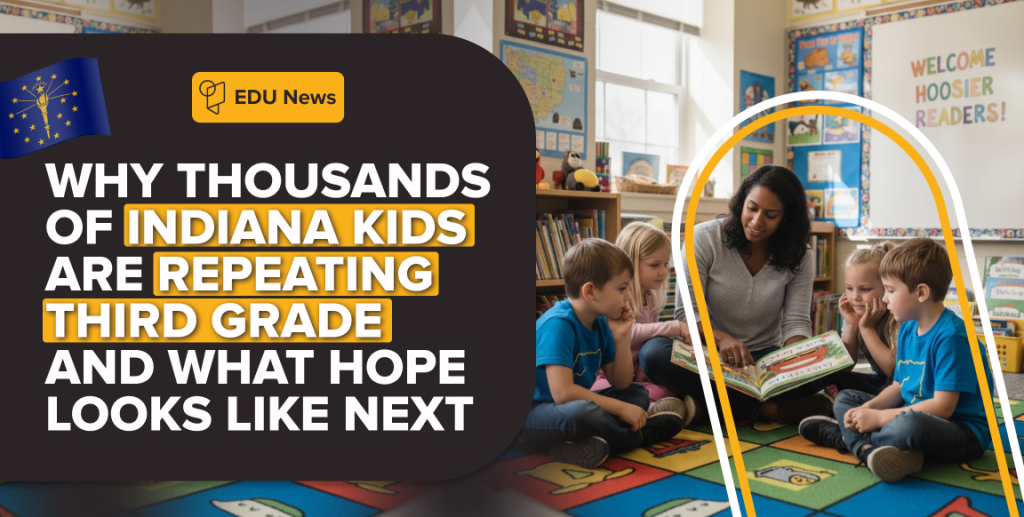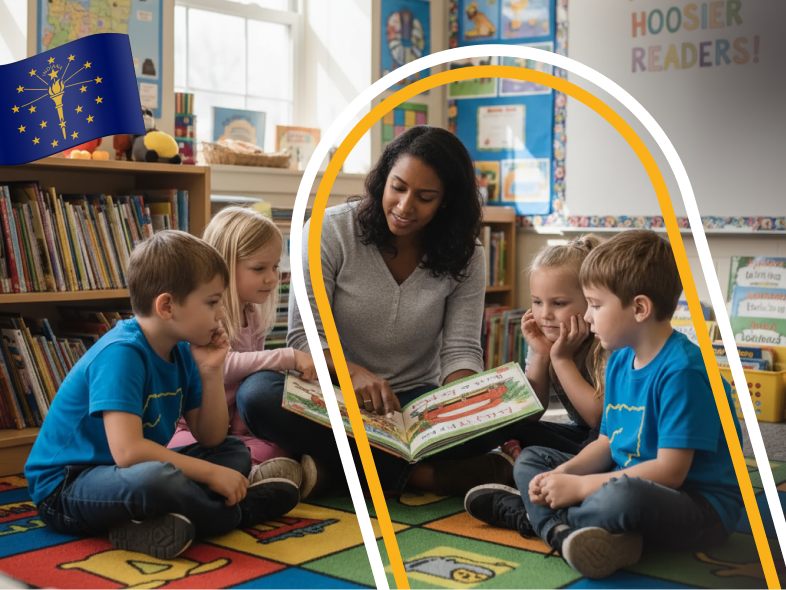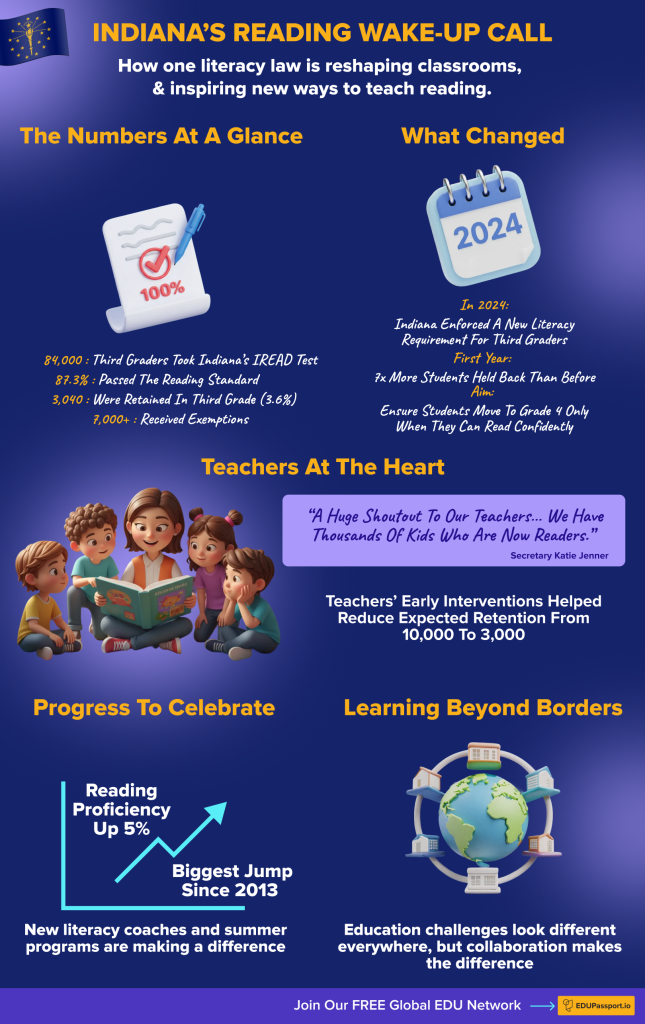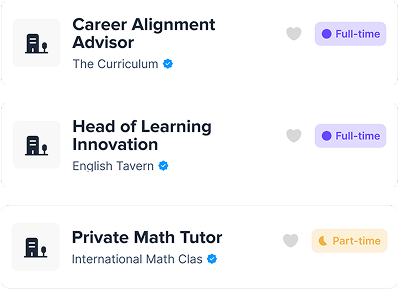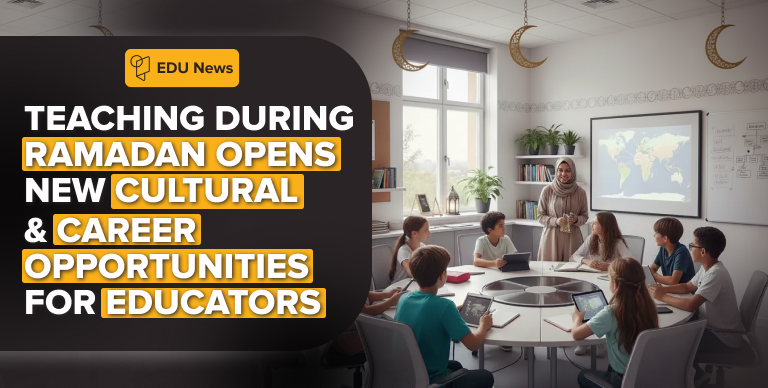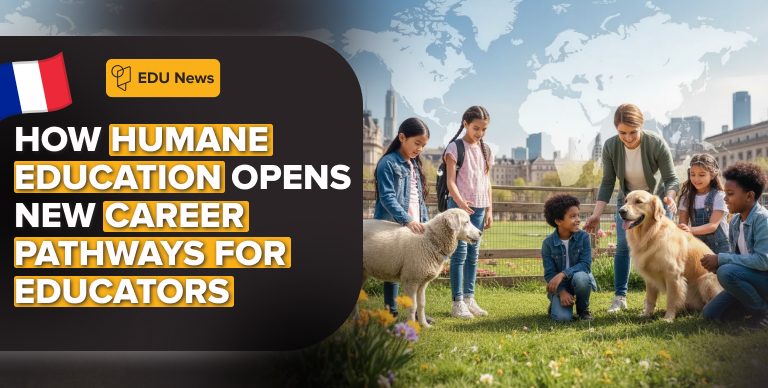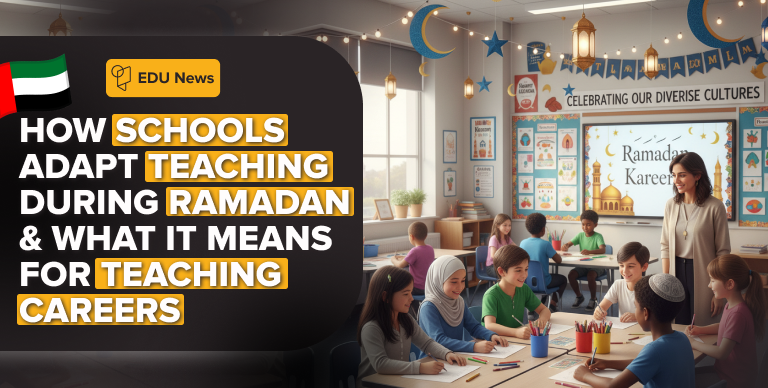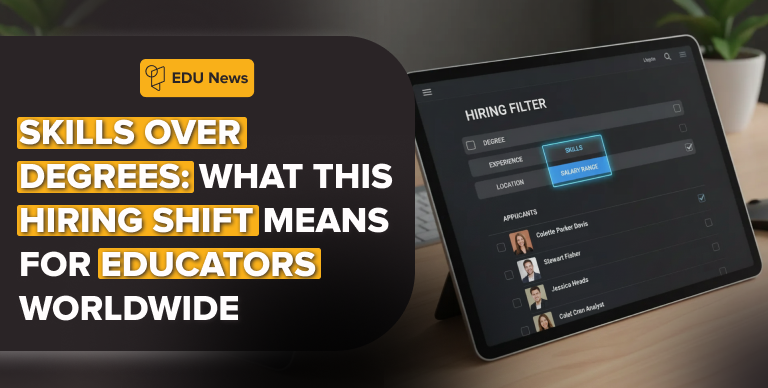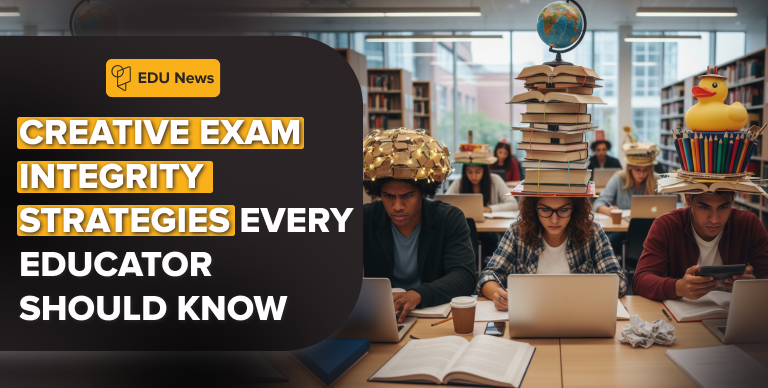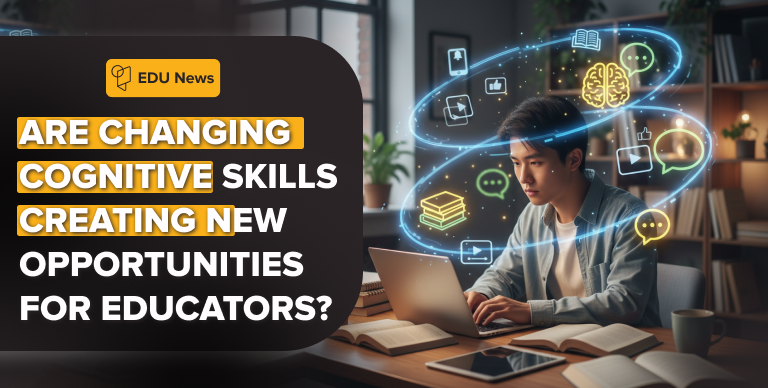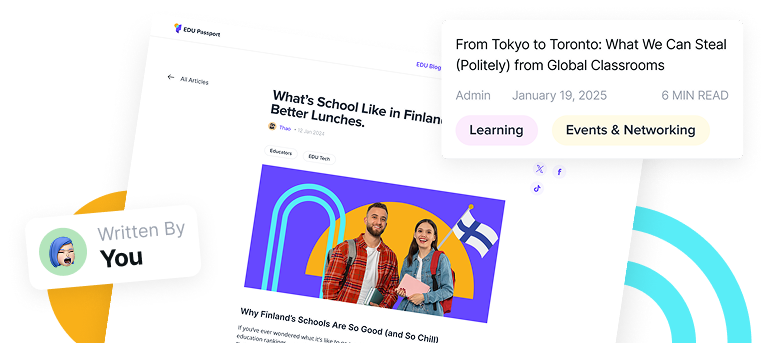Around 3,000 third graders in Indiana are starting this school year right where they left off, not because they didn’t try, but because they didn’t meet the state’s new reading proficiency standards.
It’s a number that’s stirring emotions across classrooms and kitchen tables. Parents are worried, teachers are reflective, and policymakers are calling it accountability. But beneath the statistics lies something far more personal: the story of young learners and the educators determined to help them find their way back to confidence.
A New Literacy Law, Real Consequences
According to data from the Indiana Department of Education (IDOE), 3.6% of roughly 84,000 students who took the statewide IREAD exam were held back under a 2024 law enforcing minimum reading proficiency before advancing to fourth grade.
That means 3,040 children are repeating third grade, a sharp increase from just 412 two years ago.
When the policy was first introduced, projections warned that as many as 10,000 students could be retained. But improved reading performance helped reduce the impact. Indiana Secretary of Education Katie Jenner credited teachers for the unexpected progress.
“The numbers that were being thrown out were 7,000 to 10,000,” Jenner told the State Board of Education. “But a huge shout out to our teachers. We have thousands of kids who are now readers.”
(Source: Indiana Capital Chronicle)
The Good News and the Gaps
There’s reason for cautious optimism. The 2024–25 school year saw 87.3% of third graders demonstrate reading proficiency, a nearly five-point leap from the year before. It’s the biggest improvement since Indiana began IREAD testing in 2013.
Still, about 10,600 students didn’t meet the state standard. Roughly 7,000 of them qualified for “good cause exemptions.”
Most exemptions went to special education students (nearly 75%) or English learners with less than two years of literacy support (about 24%). These are children for whom reading in English isn’t just academic; it’s an uphill climb layered with other challenges.
For Anna Shults, IDOE’s Chief Academic Officer, the retention rule isn’t about punishment but preparation. “We’re now ensuring that students promoted to fourth grade can actually read and master key foundational skills,” she said.
A System Under Pressure
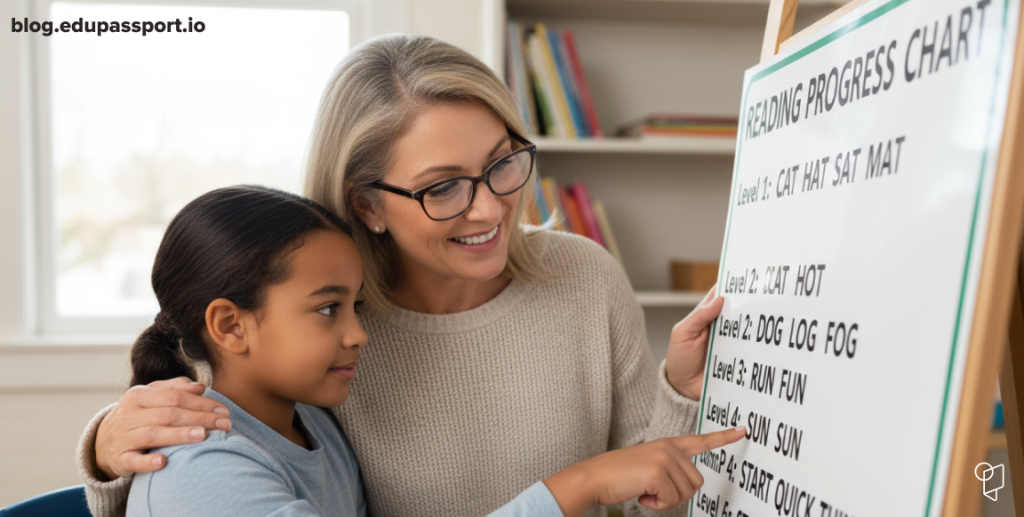
Retention is never easy for children, parents, or teachers. It comes with stigma, emotional strain, and sometimes, financial pressure for schools. But it also underscores a truth that educators have been saying for years: early reading matters, deeply.
A child who struggles with literacy in third grade is four times more likely to drop out later. And while policymakers frame retention as a way to reset learning, teachers know it takes more than an extra year to rebuild confidence.
Across Indiana, classrooms are filled with students relearning the same materials, often feeling they’ve fallen behind their peers. The best educators turn that moment into a second chance, using creative strategies, individualized support, and patience to reignite the joy of reading.
Teaching, Learning, and Hope
Education Secretary Jenner noted that many schools are already seeing better outcomes from earlier interventions. Literacy coaches are being added. Summer programs have expanded. Teachers are collaborating more closely to identify struggling readers early.
The IDOE even plans to launch an online dashboard that tracks reading data by school district, including charter and nonpublic schools. It’s a move toward transparency and shared accountability.
But perhaps what’s most inspiring is what’s happening beyond the policy headlines. Across Indiana and beyond, educators are trading worksheets for storytelling, phonics drills for real-world reading, and isolation for collaboration.
That’s where communities like EDU Passport come in. Spaces where teachers from Indiana to Indonesia swap strategies, share classroom hacks, and remind each other that literacy isn’t just about test scores. It’s about connection, voice, and confidence.
The Bigger Picture
It’s easy to get lost in the numbers: 84,000 test-takers, 10,600 below standard, 3,000 held back. But each number represents a child, one who might be carrying more than just a reading score.
Behind every struggling reader is a teacher who stays late after school, a parent who practices bedtime stories, and a community that can choose empathy over judgment.
As Indiana’s new policy reshapes classrooms, educators are being reminded of a universal truth: literacy is not a checkbox. It’s the bridge to every other skill and every other dream.
Around the world, schools are reimagining learning through collaboration and digital innovation. In South Africa, for example, educators are using virtual tools to close learning gaps and prepare students for future careers. This article shows how technology and teacher collaboration can rewrite the education story, just as Indiana’s teachers are trying to do now.
At EDU Passport, we believe every teacher deserves the tools, community, and inspiration to make reading not just a skill, but a superpower. If you’re an educator, join a global network that celebrates ideas, collaboration, and the power of learning.
Sign up for free on EDU Passport and be part of the movement that’s transforming education, one reader at a time.



